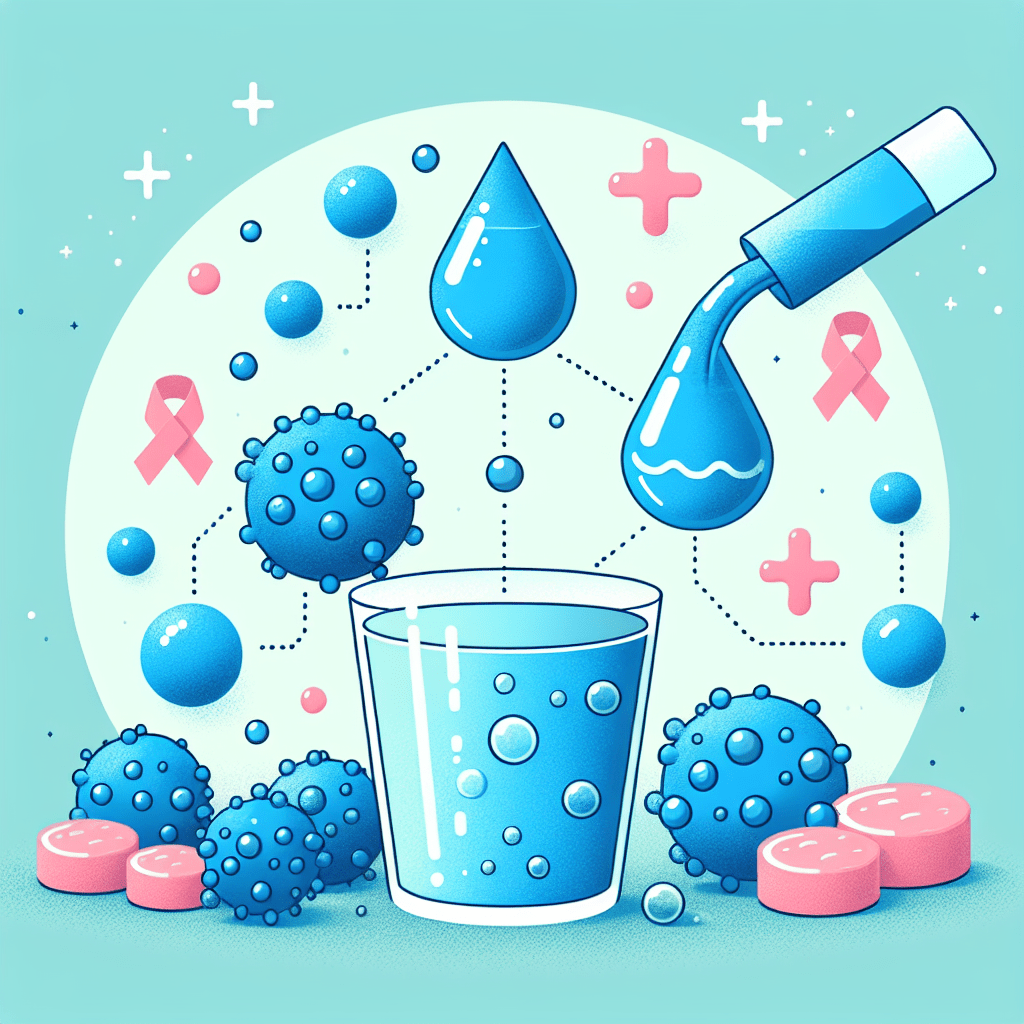Can water help cure cancer?

Can Water Help Cure Cancer? An In-depth Look at the Role of Hydration in Cancer Prevention and Treatment
Water is the essence of life. It is vital for the normal functioning of our body and is involved in every bodily function, from digestion and circulation to temperature regulation and waste removal. But can water help cure cancer? This is a question that has been asked by many, and while the answer may not be as straightforward as we would like, there is evidence to suggest that staying hydrated can play a significant role in cancer prevention and treatment.
The relationship between hydration and cancer is a complex one. On one hand, water is essential for maintaining overall health and well-being, which can indirectly help in preventing cancer. On the other hand, there is also scientific evidence to suggest that proper hydration can directly affect cancer cells and inhibit their growth.
Let's delve deeper into these two aspects.
The Indirect Role of Water in Cancer Prevention
Staying hydrated is crucial for maintaining overall health. It helps in flushing out toxins from the body, aids in digestion, keeps our skin healthy, and boosts our immune system. All these factors indirectly help in cancer prevention.
As Dr. Howard Murad, renowned dermatologist and founder of Murad Skincare, said, "Cells that are fully hydrated are better able to absorb nutrients and eliminate waste, which can help prevent disease, including cancer."
The Direct Role of Water in Cancer Treatment
Recent scientific studies have shown that water can also play a direct role in inhibiting the growth of cancer cells. A study published in the Journal of Biological Chemistry found that cancer cells are more likely to grow and spread in a dehydrated environment.
Another study published in the journal Nature found that high levels of hydration can cause cancer cells to self-destruct, a process known as apoptosis. The researchers concluded, "Our findings suggest that increased hydration induces apoptosis in cancer cells, providing a new approach to cancer treatment."
"Increased hydration induces apoptosis in cancer cells, providing a new approach to cancer treatment."
While these studies are promising, it's important to note that they are preliminary and more research is needed to fully understand the relationship between hydration and cancer. However, they do highlight the potential role of water in cancer treatment.
How Much Water Should You Drink?
The amount of water a person should drink can vary depending on a variety of factors, including their age, sex, weight, activity level, and overall health. However, a general guideline is to drink at least 8 glasses of water a day. This can include water from all sources, including beverages and food.
It's also important to note that while staying hydrated is crucial, drinking excessive amounts of water can lead to water intoxication, a serious condition that can be life-threatening. Therefore, it's important to maintain a balance and drink an appropriate amount of water.
Conclusion
While water may not be a magic bullet that can cure cancer, it is clear that staying hydrated plays a crucial role in maintaining overall health and can potentially aid in cancer prevention and treatment. As the famous quote goes, "Water is life's matter and matrix, mother and medium. There is no life without water."
So, remember to keep yourself hydrated, not just for your overall health, but also as a preventive measure against diseases, including cancer.
"Water is life's matter and matrix, mother and medium. There is no life without water."
In summary, water plays an indirect role in cancer prevention by maintaining overall health and a direct role by inhibiting the growth of cancer cells. While more research is needed, staying hydrated is a simple and effective way to boost your health and potentially reduce your risk of cancer. And remember, the importance of hydration extends beyond cancer prevention - it's also crucial for heart health, digestion, skin health, and much more.



